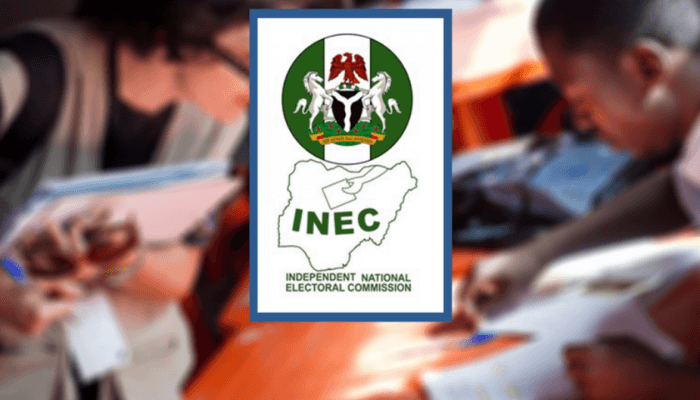The next cycle of national elections is less than two years away, but high-level politicking is already upon us. While key actors have tuned up the political decibels, the much-needed fine-tuning of the electoral framework seems to have been relegated.
The debate about the lacunae in the Electoral Act (EA) and the need to expand the scope of the voting process became very topical during the 2023 general election. As such, tweaking the laws not just once but repeatedly has since been crucial.
The electoral body, the Independent National Electoral Commission (INEC), recently made this point when it appealed to the National Assembly (NASS) to expedite action on the electoral legal framework so that the commission would have enough time to implement it.
It also pushed for the amendment of the 1999 Constitution and the Electoral Act, 2022, to, among other things, provide for special voting for inmates and diaspora citizens and establish the Electoral Offences Commission and Political Party Regulatory Agency.
The electoral body made its position known at a recent retreat of the National Assembly—Senate and House of Representatives Joint Committee on Electoral Matters, INEC, on the ‘Review of the Electoral Legal Framework’ in Lagos.
The commission held the retreat to underscore the need for expedited action. It also used the opportunity to identify time management as a real challenge. Listing areas that needed attention, the commission called for provisions to introduce early/special voting to cater to eligible voters on essential services, election personnel, voters under incarceration, those in the Diaspora, and out-of-country voting for eligible Nigerians. For these purposes, it introduces a new subsection 12 (2) and amends Section 45 of the Electoral Act.
It also urged the National Assembly to amend the electoral legal framework to establish (a) an Electoral Offences Commission and (b) a Political Party Regulatory Agency. It said this would require the amendment of Sections 75, 76, 77, 78, 79, 80, 81, 82, 83, 84, 85, 86, 87, 89, 90(4), 144 and 145 of the Electoral Act 2022. These provisions, which border on the powers of the commission to register/de-register, monitor, and regulate political parties, are now transferred to the Political Party Regulatory Agency.
Similarly, Section 31 of the Electoral Act 2022 will be amended to define the period for the withdrawal and substitution of candidates by law so that no party can substitute its candidate two weeks after the publication of the final list of candidates except in the event of death as provided for in Sections 33 and 34 of the Electoral Act 2022.
In like manner, Section 82 (5) of EA 2022 relating to the failure to submit dates and venues of party congresses and primaries on schedule should be amended. The amendment should provide stiffer penalties for political parties that fail to submit dates and venues of party congresses and primaries or fail to comply with their party primaries’ rules and guidelines.
The National Assembly should amend sections 48, 49, 71 & 91 of the 1999 Constitution by providing special seats for women and PWDs; review sections 47 (1) and 16 (1, 2 & 4) on the design, printing, control, issuance, and use of PVCs.
The lawmakers should also review sections 47 (1) and 16 (1, 2 & 4) to modify the requirements for using PVCs to allow for the Introduction of an Electronically Downloadable Voters’ Card or any other form of identity card acceptable to the commission.
Section 19 (2) of the Electoral Act 2022 should also be amended to extend the period for displaying the preliminary register of voters and the processing time. This amendment is being sought to provide sufficient time for INEC to incorporate changes resulting from the display of the preliminary register of voters for claims and objections in accordance with Section 19 (2) of the Electoral Act 2022 from 14 to 21 days.
INEC also seeks to amend Section 65 (1) to clarify its powers to review election results and create a caveat in Section 65 (1) to provide that the triggers for the review of results should be instances of declarations made under duress.
Furthermore, NASS should amend Sections of the Electoral Act 2022 to remove ambiguities/cross-referencing errors. Section 60 (5) refers to the ‘transfer’ of results while 64 (4 & 5) is about ‘direct transmission’; (b) Section 64 (4a & 5) refers to 47 (2) with regards to the transmission of results; yet 47 (2) does not refer to the transmission of results; (c) there are similar ambiguities identified in Sections 29 (1), 75 (3) & (4), 77(3), 131 (5) & (6) and 132 (5-10) of the Electoral Act, 2022 detailed in the submission of the commission.
Evidently, most of the amendments are aimed at weeding out ambiguities and loopholes that politicians have exploited in recent elections. We believe that clearing out the ambiguities, especially the results transfers, switching of candidates, and other issues that came to define the 2023 election, should be legally addressed to shore up voter confidence in coming elections.
It is pertinent to stress that time is of the essence, to enable the commission to try out the provisions of the new laws as much as possible with off-cycle elections.





